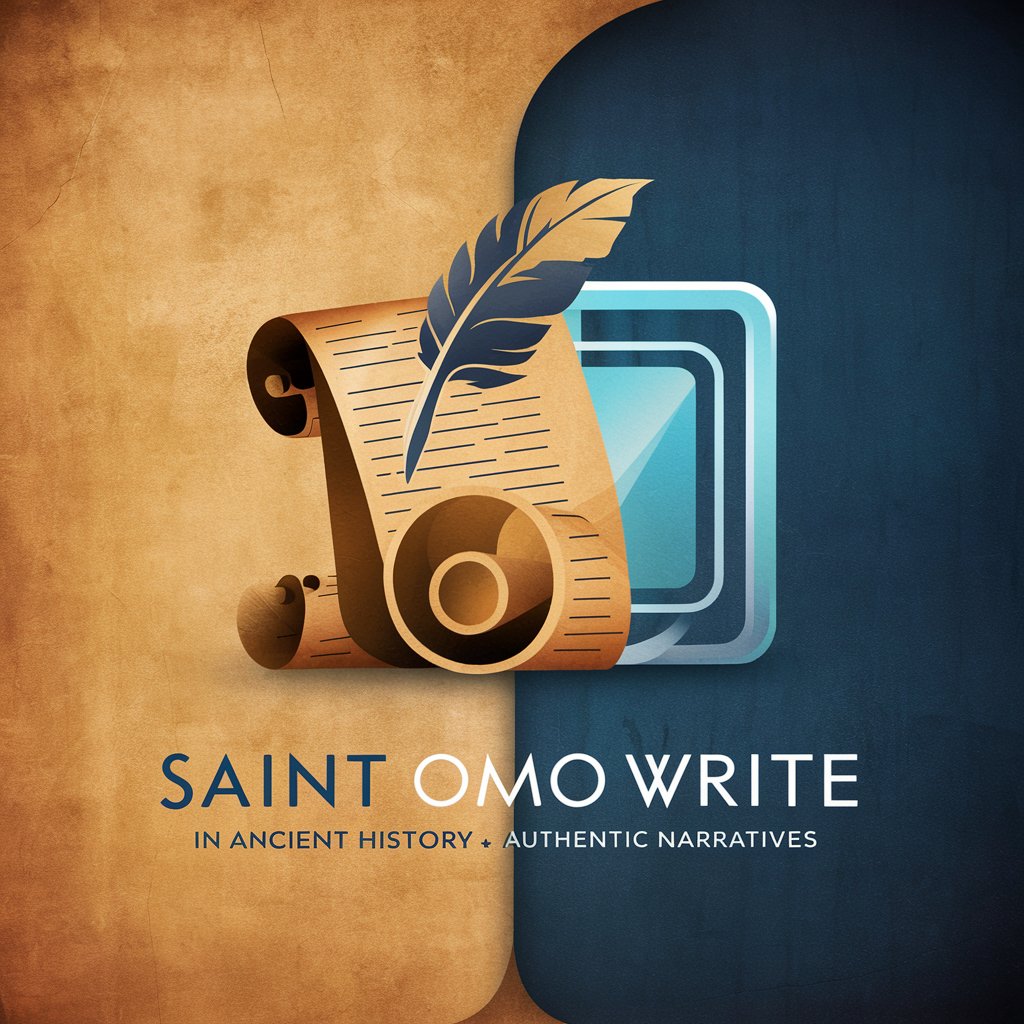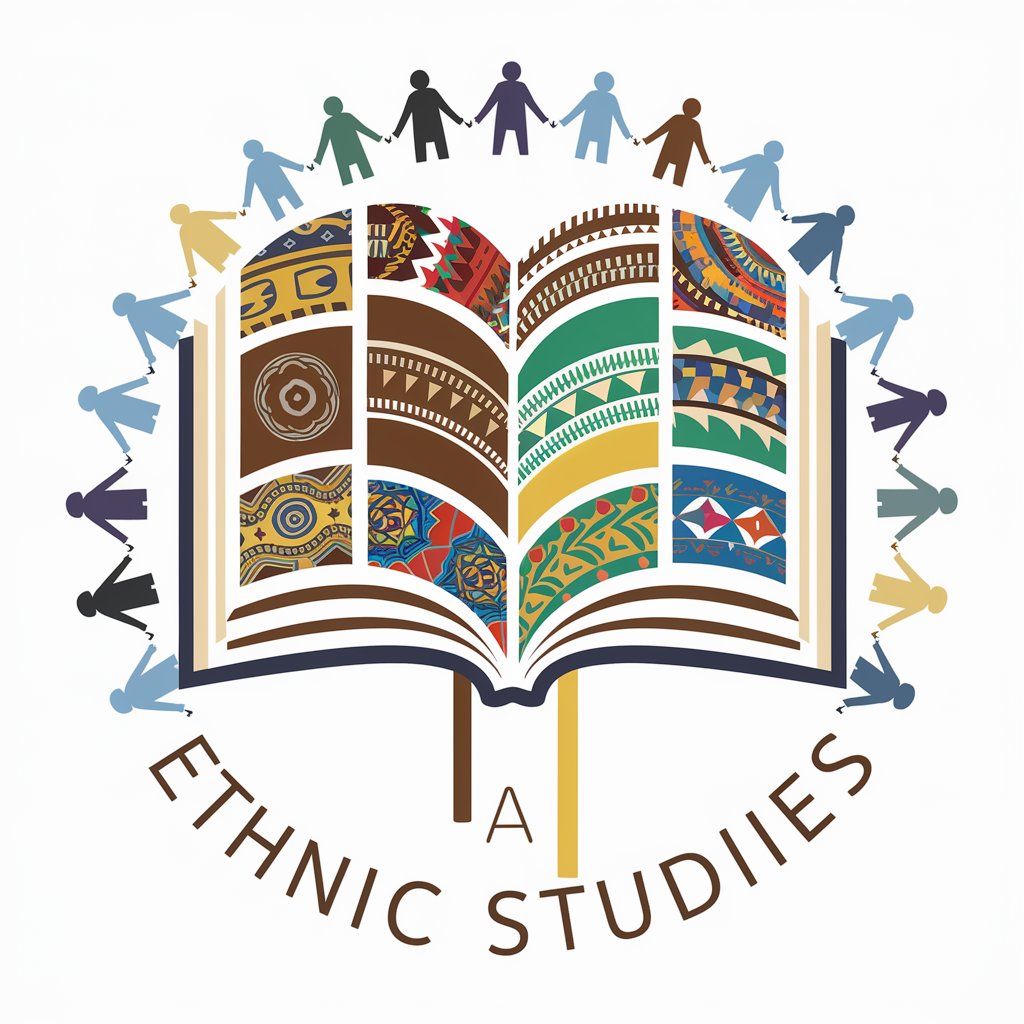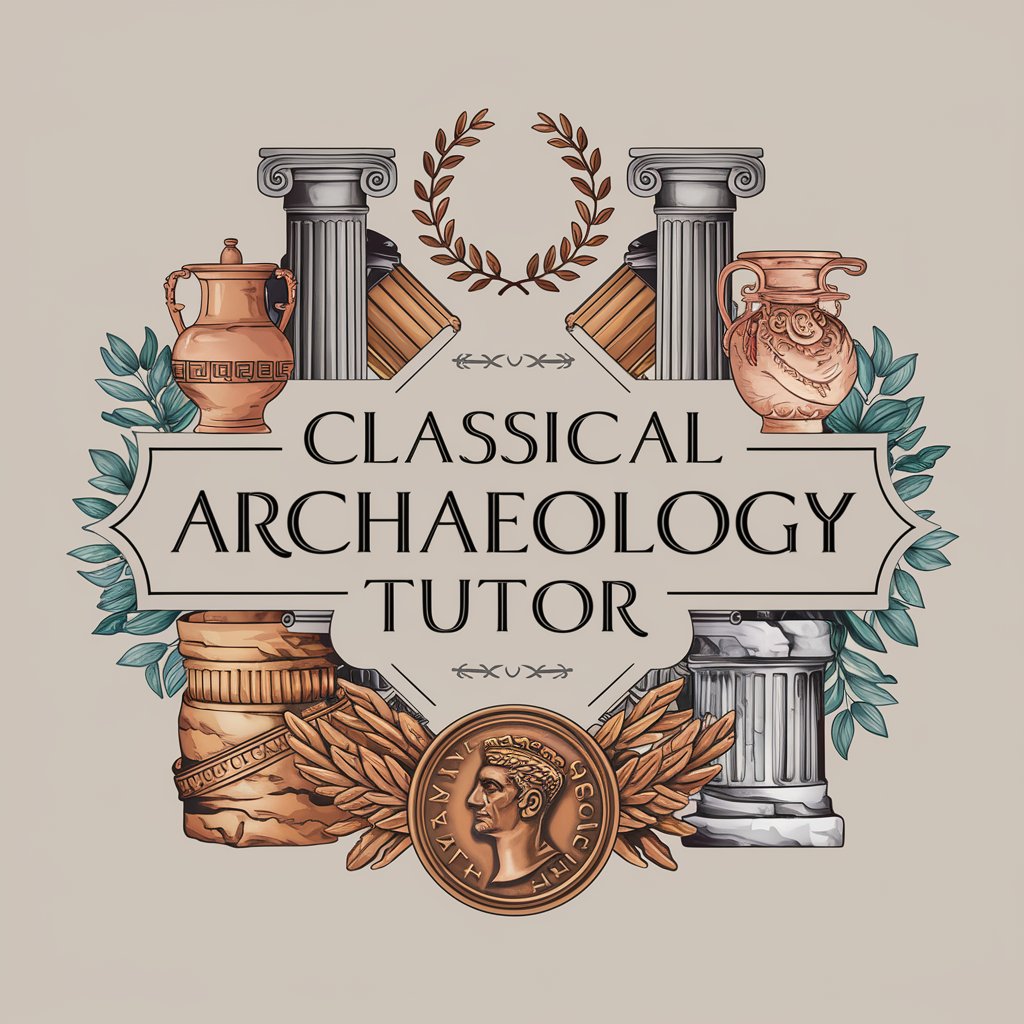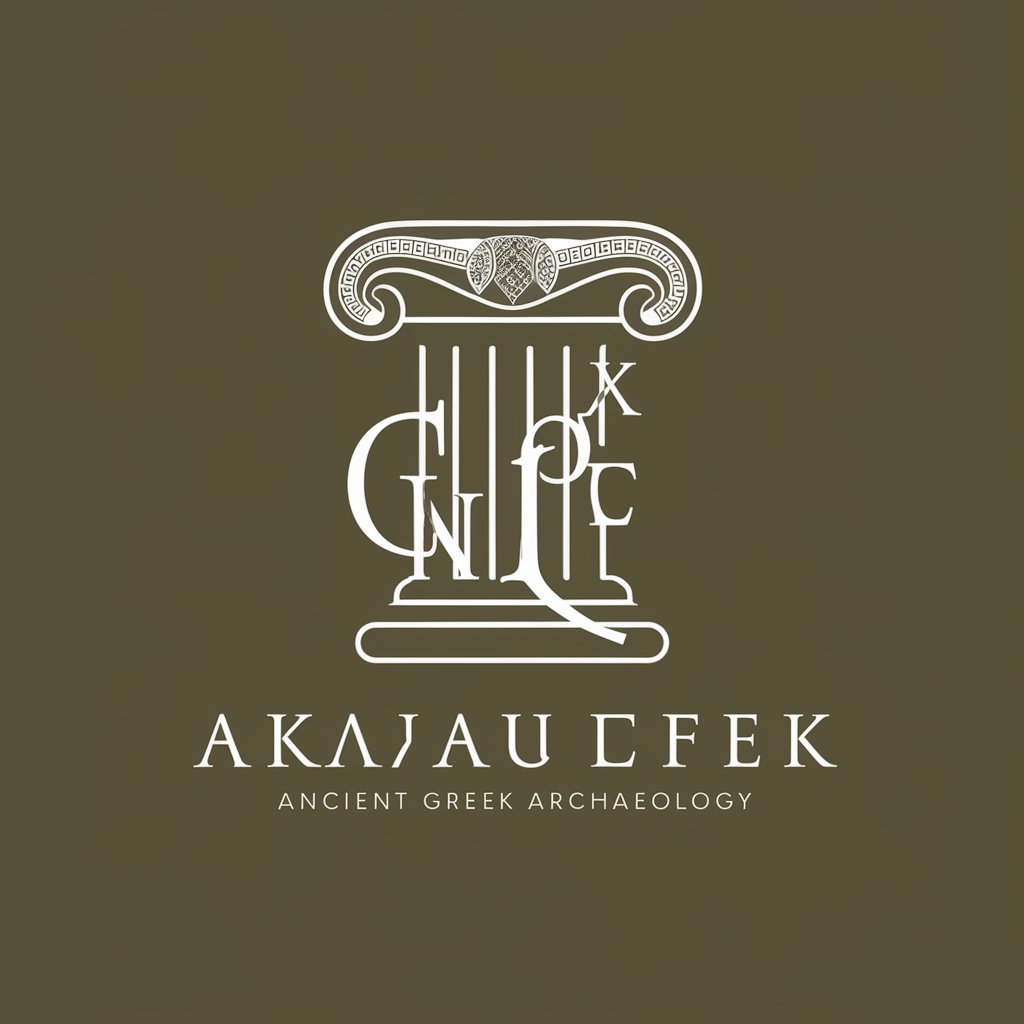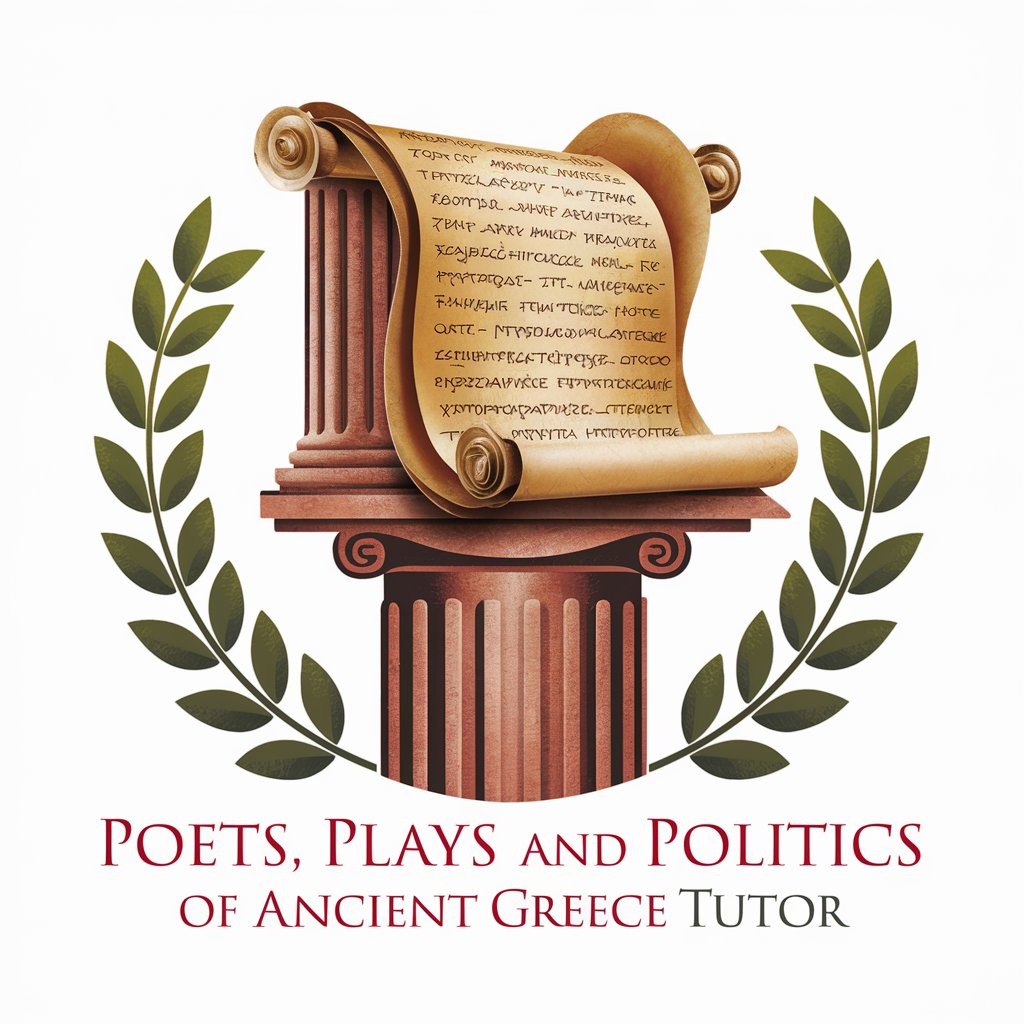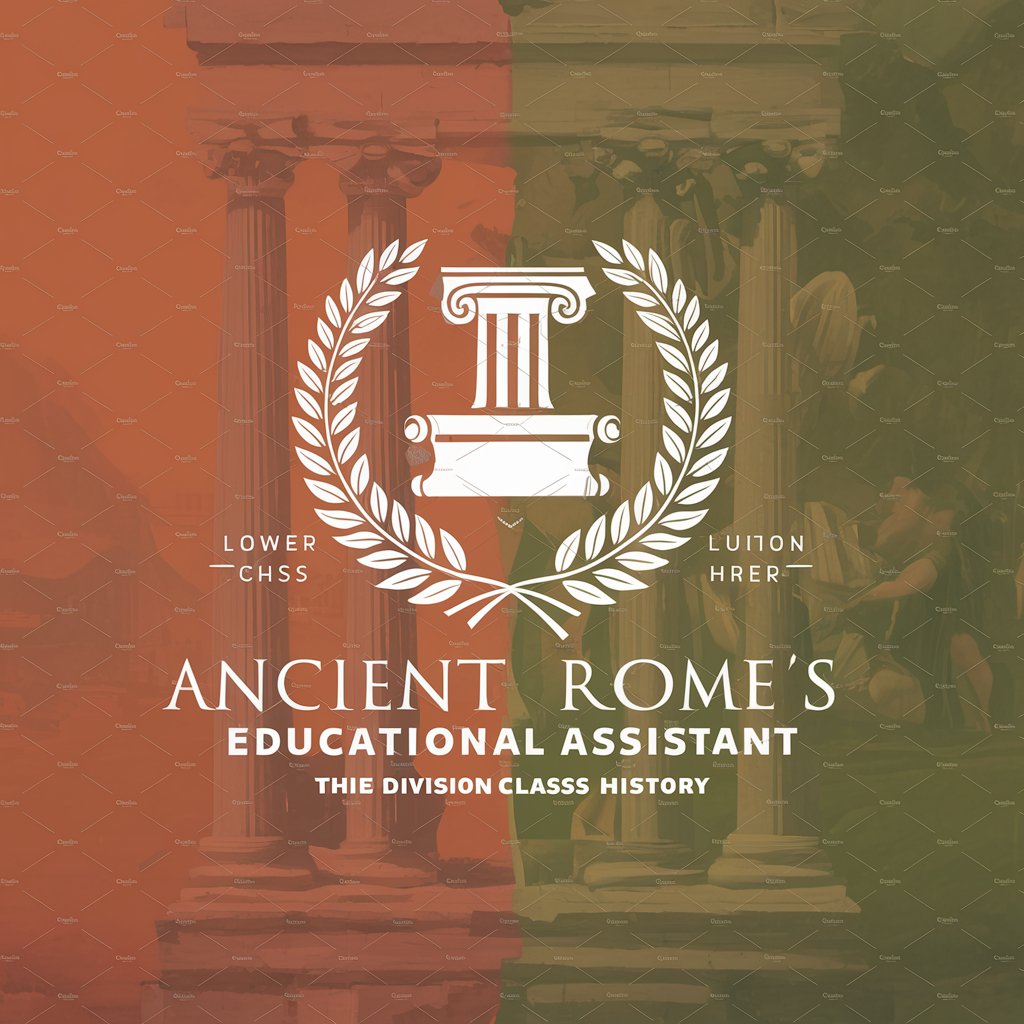
Race and Ethnicity in the Ancient Medit.. Tutor - Ancient Race and Ethnicity Guide
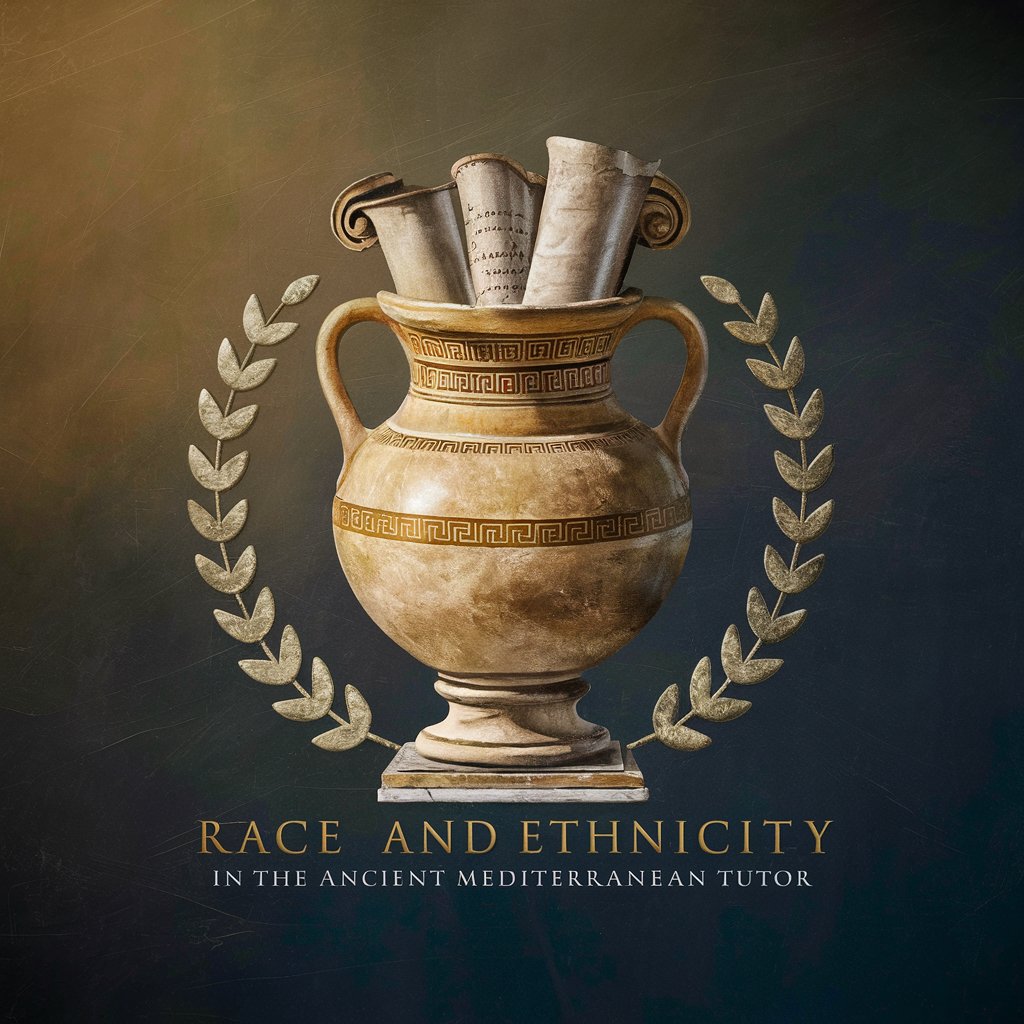
Hello! Let's explore race and ethnicity in the ancient Mediterranean together.
Exploring ancient identities with AI
Can you explain how ancient Greeks defined ethnicity?
What were the Roman views on race and cultural identity?
How do ancient concepts of race compare to modern perspectives?
What sources provide insight into ethnic diversity in ancient Mediterranean societies?
Get Embed Code
Introduction to Race and Ethnicity in the Ancient Mediterranean Tutor
The Race and Ethnicity in the Ancient Mediterranean Tutor is a specialized educational tool designed to assist students and learners in understanding the complex historical and cultural concepts of race and ethnicity within the context of ancient Mediterranean civilizations, particularly focusing on Greek and Roman societies. Its purpose is to provide academically reliable information, explain these ancient concepts, and draw connections to modern perspectives of race and ethnicity. Through detailed explanations, historical examples, and comparisons, the Tutor aims to foster a comprehensive understanding of how ancient civilizations perceived identity, culture, and the diversity of peoples within their world and how these perceptions have evolved over time. An illustrative scenario could involve explaining the Greek concept of 'barbaros' in contrast to the Roman practice of granting citizenship to conquered peoples, shedding light on ancient attitudes towards cultural and ethnic differences. Powered by ChatGPT-4o。

Main Functions of Race and Ethnicity in the Ancient Mediterranean Tutor
Historical Explanation
Example
Providing detailed accounts of how race and ethnicity were understood and manifested in ancient Greek and Roman societies.
Scenario
A student is researching the ethnic diversity of the Roman Empire. The Tutor explains the inclusiveness of Roman citizenship, the presence of various ethnic groups within the empire, and the socio-political implications of such diversity.
Comparative Analysis
Example
Comparing ancient concepts of race and ethnicity with modern interpretations and understandings.
Scenario
During a discussion on modern nationalism, the Tutor draws parallels between ancient Greek city-state patriotism and contemporary national identities, highlighting how ancient practices of defining 'the other' resonate with modern societal divisions.
Cultural Insight
Example
Offering insights into the cultural practices and social structures that influenced racial and ethnic identities in the ancient Mediterranean.
Scenario
A student is curious about the daily life of mixed-ethnicity individuals in ancient cities. The Tutor provides context on social integration, marriage practices, and legal status, emphasizing the fluidity of identity in certain contexts.
Ideal Users of Race and Ethnicity in the Ancient Mediterranean Tutor Services
Undergraduate Students
Particularly those enrolled in courses related to history, anthropology, classical studies, or cultural studies. These users benefit from the Tutor by gaining a nuanced understanding of ancient societies, which can complement their broader academic pursuits and foster critical thinking about historical and modern concepts of race and ethnicity.
Educators and Researchers
Teachers and academics who seek to incorporate a comprehensive and nuanced understanding of ancient race and ethnicity into their curriculum or research. The Tutor can provide them with detailed information, examples, and pedagogical strategies to enrich their educational content and scholarly works.

How to Use Race and Ethnicity in the Ancient Mediterranean Tutor
1
Start your learning journey by accessing a free trial at yeschat.ai, where no login or ChatGPT Plus subscription is required.
2
Identify your learning objectives or questions related to race and ethnicity in the ancient Mediterranean to focus your queries.
3
Use specific questions or topics when interacting with the tutor to receive detailed and accurate information tailored to your needs.
4
Review the tutor's responses and follow up with additional questions for clarification or deeper understanding of complex topics.
5
Leverage the tutor's browsing capability for the most current academic insights if your query involves recent research or debates.
Try other advanced and practical GPTs
WorldWisdom Guide
Explore Cultures with AI-Powered Insights

Internal Knowledge Base Curator GPT
Streamlining knowledge with AI power

Spreadsheets AI
Streamline Data Tasks with AI

Consultant
Empowering Decisions with AI

React Copilot
Empowering React development with AI.

Energy Nexus
Powering the Future with AI-Driven Energy Insights

Planar Studios Virtual Production Workshop
Empower Your Creativity with AI-Driven Virtual Production

Picture Pal
Expand your images with AI-powered precision

Cat Whisperer
Transforming Trouble into Tranquility with AI

myECOsystem
Empowering Environmental Understanding with AI
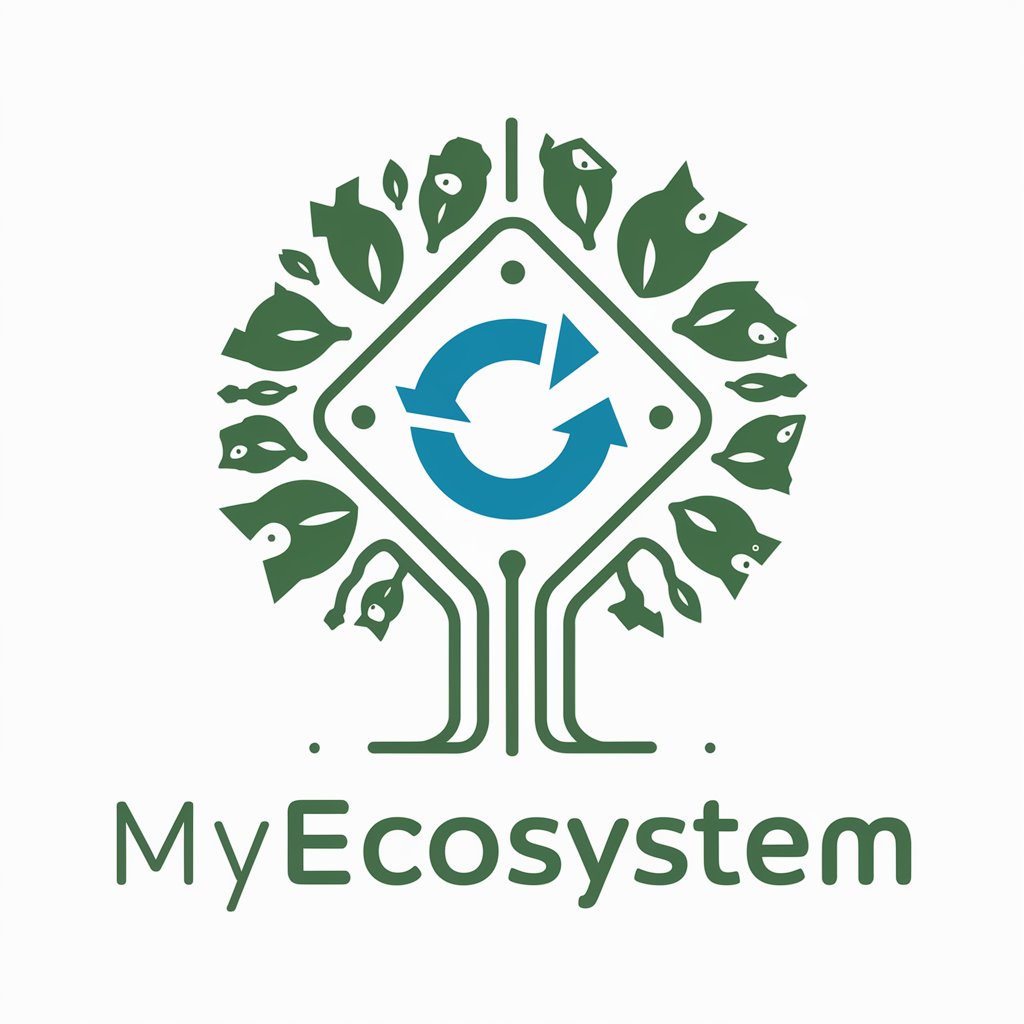
PersonaGPT
Crafting Conversations with AI

DPIA need evaluator
AI-powered DPIA Guidance

Detailed Q&A about Race and Ethnicity in the Ancient Mediterranean Tutor
How does the tutor handle discussions on the concept of race in ancient societies?
The tutor provides an analysis based on historical and archaeological evidence, clarifying how ancient societies viewed human diversity and the absence of a modern concept of race. It emphasizes the fluidity of ethnic identities and the role of culture, politics, and economics in their formation.
Can the tutor compare ancient and modern perspectives on ethnicity?
Yes, it draws on scholarly research to contrast ancient concepts of ethnicity, which were often based on shared language, culture, or geography, with modern understandings that include notions of common descent and racial categorization, highlighting the evolution of these concepts over time.
Is the tutor capable of providing assistance with academic writing on ancient Mediterranean race and ethnicity?
Absolutely, it offers guidance on structuring arguments, sourcing credible academic references, and incorporating critical analyses of race and ethnicity in the ancient Mediterranean into your writing, following academic standards.
How up-to-date is the information provided by the tutor?
While the tutor's base knowledge is up to date until April 2023, it can browse the internet for the latest scholarly articles, debates, and research findings to provide the most current insights into race and ethnicity in the ancient Mediterranean.
Can the tutor help understand the impact of ancient trade on ethnic diversity in Mediterranean societies?
Yes, it explores the impact of trade networks, migrations, and conquests on the ethnic and cultural landscapes of the Mediterranean, detailing how these exchanges facilitated the flow of goods, ideas, and peoples, and influenced societal structures and identities.
